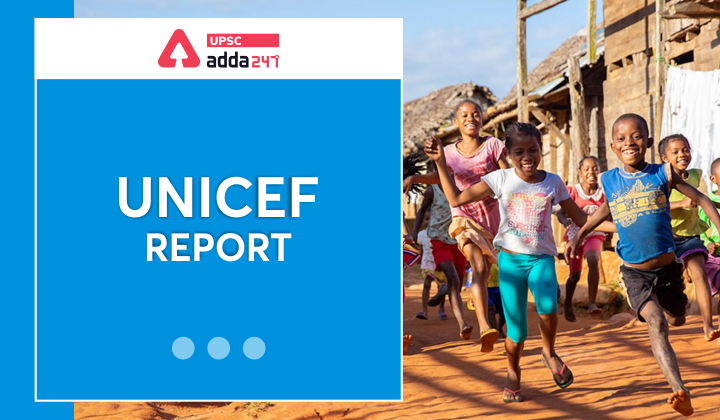Table of Contents
Relevance
- GS 2: Issues relating to poverty and hunger.
Context
- Recently, UNICEF has released a new report titled, ‘Fed to Fail? The crisis of children’s diets in early life’ where it has drawn attention to how health emergencies like Covid, along with rising poverty, conflict, inequality and climate-related disasters are contributing to the ongoing nutrition crisis in young children.
Key points
Child undernutrition
- The report has found that children under the <2 years of age are not getting the food and nutrients necessary for growth, leading to irreversible developmental harm.
- Poor nutritional intake in the first two years of life can irreversibly harm children’s rapidly growing bodies and brains, impacting their schooling, job prospects and futures.
- The report studied 91 countries and found that only half of the children between 6-23 months are being fed the minimum recommended number of meals every day.
- Moreover, only a third of the children consume the minimum number of food groups they need to thrive.
- Inadequate intake of nutrients at an early age put children at risk of poor brain development, weak learning, low immunity, increased infections and potentially, death.
1000 Day Plan for 1 trillion Dollar Digital Economy
Covid situation
- Covid has also impacted how families feed infants. For example, a survey conducted among urban households in Jakarta found that half of families have been forced to reduce nutritious food purchases.
- Due to this reason, the percentage of children consuming the minimum recommended number of food groups fell by a third in 2020, compared to 2018.
Rural-Urban divide
- Children aged between 6-23 months, who are living in rural areas or are from poorer households, are significantly more likely to be fed poor diets compared to their urban or wealthier peers
- In 2020, the proportion of children fed the minimum number of recommended food groups was twice as high in urban areas (39%) than in rural areas (23%).




 TSPSC Group 1 Question Paper 2024, Downl...
TSPSC Group 1 Question Paper 2024, Downl...
 TSPSC Group 1 Answer key 2024 Out, Downl...
TSPSC Group 1 Answer key 2024 Out, Downl...
 UPSC Prelims 2024 Question Paper, Downlo...
UPSC Prelims 2024 Question Paper, Downlo...





